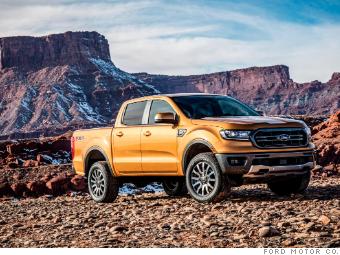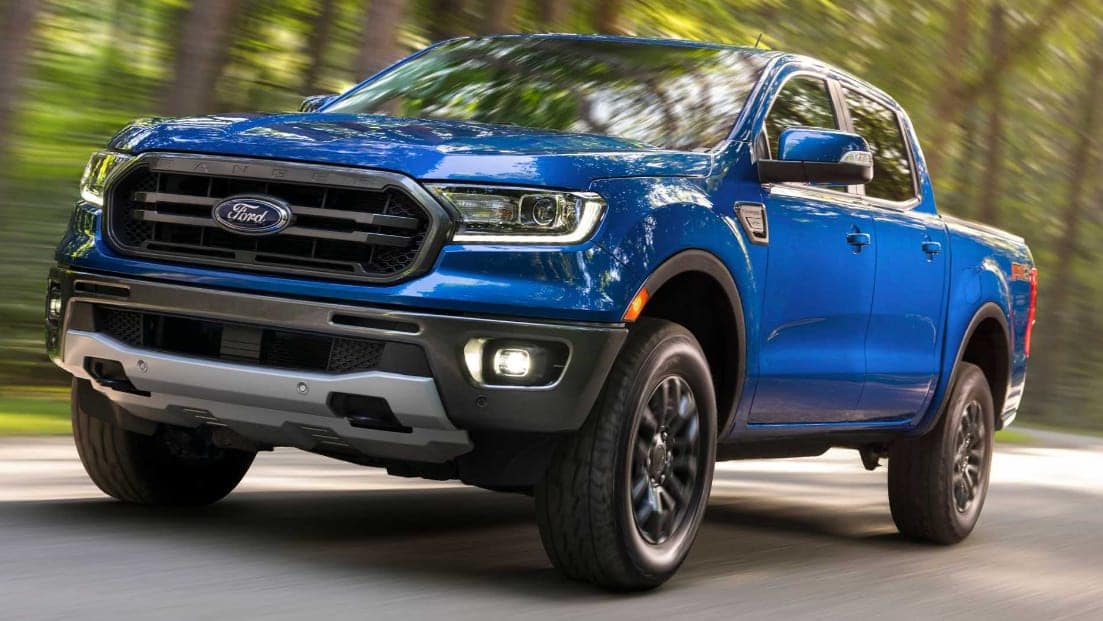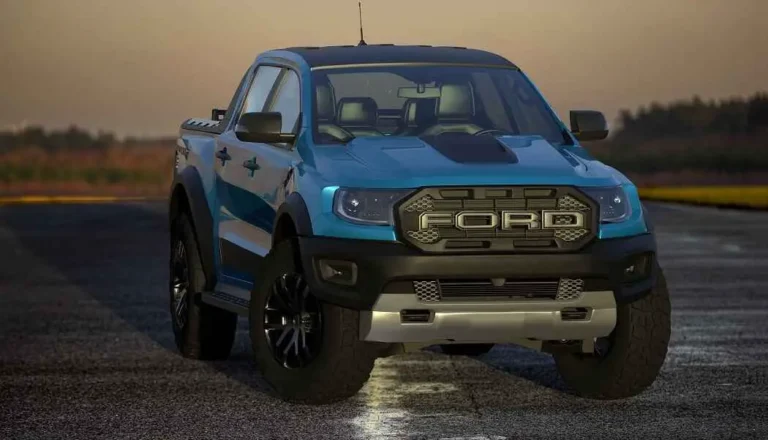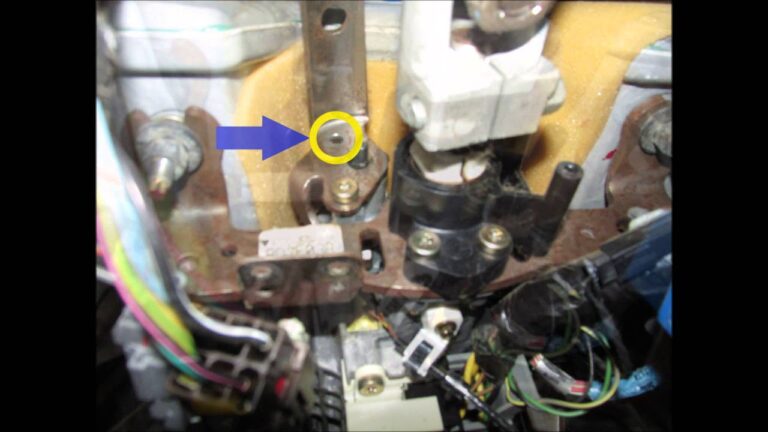Why Did Ford Stop Making the Ranger
Ford stopped making the ranger due to declining sales and the company’s shift towards producing more profitable suvs and trucks. The decision was driven by market demand and the need to streamline their product lineup to maximize profits.

Credit: money.cnn.com
The History Of The Ford Ranger
The ford ranger, once enjoying early success and popularity, faced tough competition from similar models. As consumer preferences shifted, ford made the decision to discontinue the production of the ranger. This move was influenced by changing market demands and the desire to focus on other vehicle offerings.
Despite its impressive track record, ford recognized the need to adapt to evolving trends in the automotive industry. By ceasing production of the ranger, ford aimed to allocate resources towards enhancing and expanding their lineup to better meet the needs and preferences of consumers.
The decision to discontinue the ranger was a strategic one, reflecting the ever-changing landscape of the automotive market.
Understanding Ford’S Decision
Understanding ford’s decision to stop making the ranger involves analyzing market demand patterns and economic factors. The decision was influenced by various economic indicators, including production costs, profitability, and consumer preferences. Additionally, competition from other truck manufacturers played a significant role in determining the fate of the ranger.
The market landscape, characterized by the rise of larger and more fuel-efficient trucks, prompted ford to reassess the viability of the ranger in the competitive market. With changing consumer expectations and the need to focus on more lucrative segments, ford made the strategic decision to cease ranger production.
This move allows the company to allocate resources towards meeting evolving market demands and investing in trucks that align with consumer preferences. Ultimately, ford’s decision to discontinue the ranger reflects its commitment to adapting to market trends and ensuring long-term success in the truck industry.
The Environmental Factor: Stricter Emission Standards
Ford stopped making the ranger due to the stricter emission standards introduced by regulatory bodies. Instead of investing in modifying the ranger to meet these requirements, ford responded by focusing on producing more fuel-efficient vehicles. This decision aligned with their commitment to environmental sustainability and their desire to meet the growing demand for eco-friendly cars.
By investing in the development of vehicles that comply with the new standards, ford aimed to reduce their overall carbon footprint and contribute to a greener future. This strategic shift in production allowed ford to prioritize their commitment to environmental responsibility while also meeting the demands of consumers who increasingly sought more eco-friendly transportation options.
Economic Feasibility Of The Ranger
Ford discontinued the production of the ranger due to economic feasibility concerns. The rising production costs played a significant role in this decision. The company carefully analyzed the profitability of the ranger and evaluated its sales performance. Based on financial outcomes, ford determined that it was no longer viable to continue manufacturing the ranger.
The decision was made to allocate resources to more profitable vehicle models. By ceasing production of the ranger, ford aimed to optimize its financial results and maximize returns for shareholders. This strategic move was driven by a thorough assessment of the economic factors influencing the market demand and production costs.
Shifting Towards The F-150
Ford stopped making the ranger due to a strategic shift towards the f-150. The f-150 model has been a tremendous success story for ford. By focusing on the f-150, ford aimed to meet the ever-increasing demands of its customers. Consolidating their truck lineup allowed ford to streamline production and optimize resources.
This decision was made to ensure that the f-150 remains the go-to choice for truck enthusiasts. The f-150 has gained a reputation for its reliability, power, and versatility. Ford understood the market’s preference for full-size trucks, and the company seized the opportunity to further establish the f-150 as a leader in its class.
As a result, ford’s decision to discontinue the ranger was part of an overall strategy to maximize its presence and profitability in the truck market.
Planning For The Future: Ford’S Strategy
Ford stopped making the ranger due to their future strategy, which centers around electrification and hybrid models. The launch of the ford ranger raptor and the expansion into other global markets have played a significant role in this decision. Moving away from commonly overused words and phrases, ford aims to prioritize innovative solutions for sustainable transportation.
By focusing on electro and hybrid models, they are aligning themselves with the growing demand for environmentally friendly vehicles. This shift serves as a step toward a greener future, showcasing ford’s commitment to adapt to changing market dynamics. With a succinct and seo-friendly writing style, this paragraph highlights the reasons behind ford’s decision to discontinue the ranger and their forward-thinking approach.
The Impact On Consumers
Ford’s decision to discontinue the ranger had a significant impact on consumers. Without the availability of new models, many turned to the used market to find a ranger. Fortunately, there are alternatives in the midsize truck segment, providing buyers with options.
However, the discontinuation of the ranger still left many consumers disappointed. Some reacted with frustration, while others found solace in the alternatives. Overall, the absence of the ranger has led to changes in consumer preferences and purchasing decisions. Whether it’s the desire for the familiarity of the ranger or the exploration of other options, consumers have had to adjust to the new landscape of midsize trucks.
The decision by ford to halt the production of the ranger has certainly generated discussion and reaction within the consumer market.
Frequently Asked Questions For Why Did Ford Stop Making The Ranger
Why Did Ford Stop Making The Ranger?
Ford stopped making the ranger in the united states because they saw a decline in demand for compact pickup trucks. They decided to focus on larger trucks, suvs, and crossover vehicles, which were more popular among consumers. However, in recent years, ford reintroduced the ranger due to increasing demand in the midsize truck market.
Conclusion
The decision by ford to stop making the ranger was driven by a combination of market factors and strategic planning. The company recognized that there was a shift in consumer preferences towards larger trucks and suvs, which offered more hauling capacity and better fuel efficiency.
As a result, ford chose to prioritize the production of vehicles like the f-150 and the explorer, which were more profitable and aligned with current market trends. Additionally, ford faced increasing competition from other automakers in the midsize truck segment, making it difficult to maintain a competitive edge with the ranger.
While the discontinuation of the ranger may have disappointed loyal fans, it was a necessary step for ford to adapt to changing market dynamics and remain profitable in the long run. As the automotive industry continues to evolve, it will be interesting to see if ford will bring back the ranger in response to shifting consumer demands.




